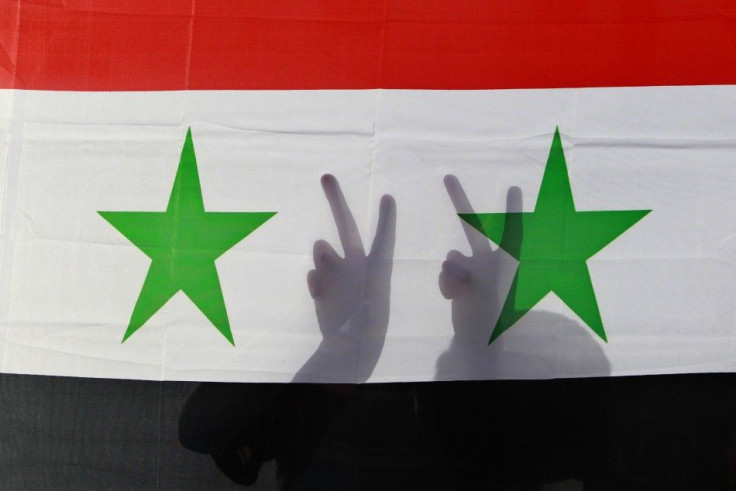Syria: One Year After Revolt Started, Killings Continue

One the one-year anniversary of the outbreak of the revolt in Syria against the regime of President Bashar al-Assad, an umbrella group of 200 human rights and aid organizations have urged Russia and China to endorse moves by the United Nations to censure Assad and put an end to the ongoing violence in Syria.
The 200 groups, representing 27 nations, said in a statement, that the UN must immediately pass a resolution condemning the Assad regime’s use of violence, torture and arbitrary detention of Syrian civilians.
Russia and China, allies of Assad, have repeatedly quashed efforts by the UN and other western and Arab nations to demand Assad’s resignation. Moscow and Beijing have urged dialogue between Assad’s government and the rebel groups, but have warned against a forced regime change through foreign military intervention.
The UN and human rights activists estimate that at least 8,000 people in Syria have been killed over the past twelve months during the regime’s brutal crackdown on dissent. Untold thousands of others have been arrested.
For a full year, the death toll in Syria has escalated… including hundreds of children, said Ziad Abdel Tawab, deputy director of the Cairo Institute for Human Rights, one of the 27 organizations, in a statement
Isn't it time for the world to unite behind effective steps to stop this now?
Souher Belhassen, president of the International Federation for Human Rights, said the Syrian people have survived with outstanding courage one year of systematic and widespread crimes and bloodshed as the world stood by and watched. The international community must unite and help Syrians bring an end to the horror.
Sarah Leah Whitson, Middle East director at Human Rights Watch, lamented: “City after city, town after town, Syria’s security forces are using their scorched earth methods while the Security Council’s hands remain tied by Russia and China. One year on, the Security Council should finally stand together and send a clear message to Assad that these attacks should end.”
Meanwhile, the violence in Syria continues unabated. After taking control of the northern province of Idlib, government troops have commenced shelling the southern city of Deraa, where the revolution against Assad began last year.
BBC reported that a British-based Syrian human rights group said at least 20 people, including seven army defectors, were killed in the Deraa offensive. At least 100 people are believed to have died in the Idlib operations, according to Human Rights Watch, following the massacre of 700 people in the two-week offensive in Homs.
However, Al Jazeera reported that on the one-year anniversary of the revolt, pro-Assad demonstrations were held in Damascus, Suweida in the south and Hasaka in the north.
One Assad supporter told state TV: After a whole year of pressure on Syria, we want to make the world hear our voice: Leave Syria in peace.”
The relentless violence has pushed a greater flood of refugees across the northwestern border of Syria into Turkey. Some of these migrants have included Syrian military forces who have defected.
A spokesman for the Turkish foreign ministry told reporters in Ankara: The number of Syrian refugees currently staying in Turkey boomed by 1,000 in a single day and climbed to 14,700 total.”
The UN estimates that 230,000 Syrians have already been displaced from their homes, while 30,000 have fled to either Turkey or Lebanon.
In order to halt the outflow of people, Assad’s soldiers have apparently placed landmines along both the Turkish and Lebanese borders.
The Syrian administration has been planting mines, taking measures not to allow refugees to flee to the other side of the border, said Besir Atalay, the Turkish deputy prime minister.
Now, as the UN and Arab League await a response to a peace proposal that Kofi Annan offered to Assad, there are rumblings in the west against arming Syrian opposition groups.
According to reports, the French foreign minister, Alain Juppe, warned that such a step would risk a deadly civil war in Syria.
The Syrian people are deeply divided and if we give weapons to a certain fraction of the opposition in Syria, we will organize a civil war between Christians, Alawites, Sunnis and Shiites. It could be a disaster even greater than what exists today, Juppe told France Culture radio.
Britain’s Prime Minister was more cautious in his statements on Syria, saying he seeks a political and diplomatic solution to the crisis.
What we want is the quickest way to stop the killing. That is through transition rather than revolution or civil war, Cameron said at a joint press conference with U.S. President Barack Obama at the White House.
© Copyright IBTimes 2024. All rights reserved.





















